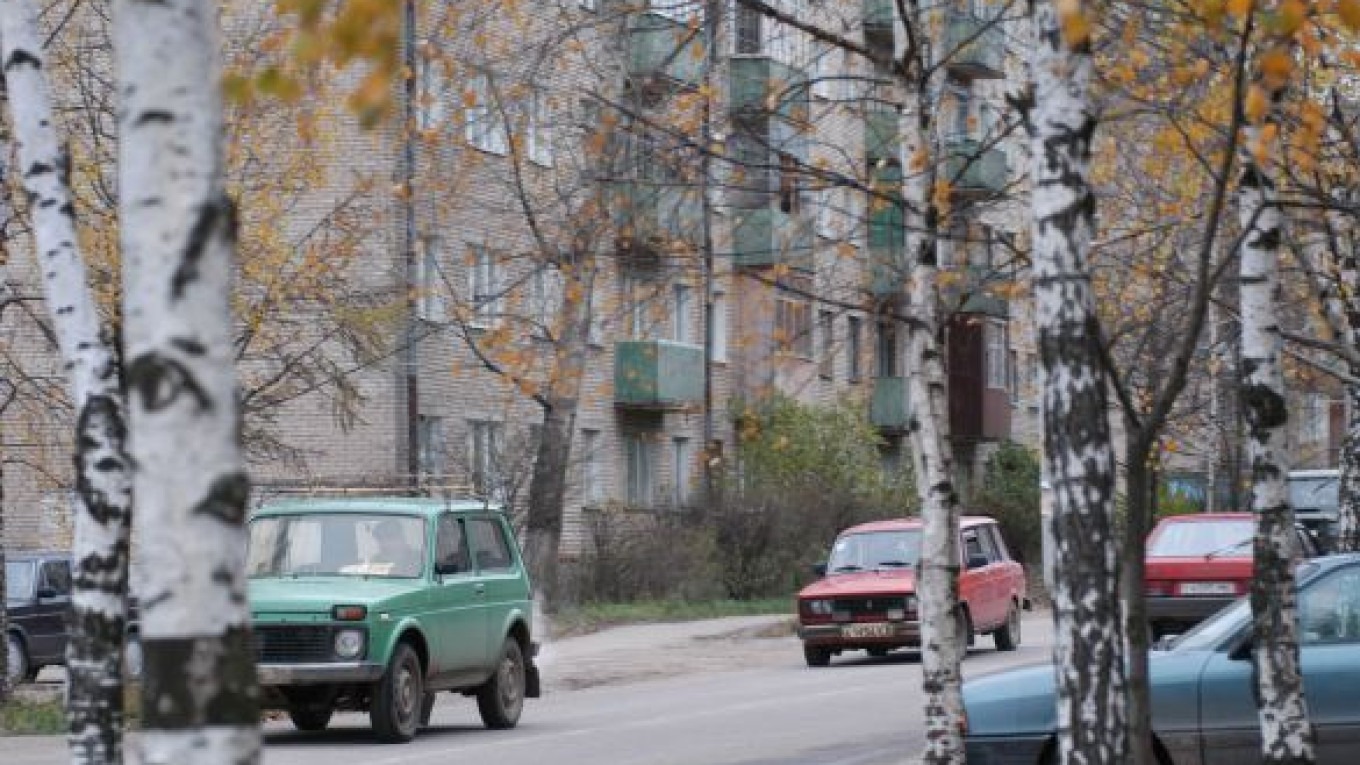In a recent comedy sketch show, a police officer forks over the pay raise that he hid from his wife after she hears President Vladimir Putin announce the increase on TV.
"Vladimir Vladimirovich," the policeman mutters on the "6 Kadrov" television show, "thank you for raising our salaries, but did you have to tell everyone about it?"
For municipal governments, more information about pay raises would be welcome. Small cities and towns typically find out about such budget changes at the same time as the public, making their planning process a complete nightmare.
The unpredictability of federal decrees is just one of the stark budget problems faced by Russia's municipalities, and it is outlined in a new report from Standard & Poor's. The international ratings agency scored the country's municipal system as a five, with one being the strongest rating and six the weakest.
The report listed 10 factors tamping down the score, ranging from meddling by federal and regional governments, to unstable sources of funding from regional and federal coffers, to the process of forcing localities to balance budgets rather than replace dying transit and housing.
Among the most serious concerns raised by S&P is the two fold problem of small towns lacking the tax base to support themselves and regional governments paying for those towns by diverting surplus revenues from major regional cities.
"About 70 percent of local government revenues come from regional governments, which deprives [the towns] of any incentive to develop" their own business climate and infrastructure, said Karen Vartapetov, the primary credit analyst for the report.
Big cities drive regional economies but are forced to share their profits with small cities and towns rather than reinvest them, Vartapetov said by telephone.
Moreover, the municipal problems are damping municipalities' credit ratings, Vartapetov said. That in turn increases the towns' costs of borrowing money, potentially adding to the problem of insufficient funds.
Overall, only 5 percent of local budgetary funds are coming from local taxes. Meanwhile, the share of local budgets derived from earmarked grants — that is, regional donations to their budgets — has grown from about 10 percent in 2002 to roughly 40 percent in 2012, S&P concluded from federal treasury data.
S&P assesses creditworthiness in five municipalities in the country, with Ufa receiving BB-, Dzerzhinsk getting B, Surgut landing BB+ and both Nizhny Novgorod and Novosibirsk rated BB.
In Nizhny Novogord and Novosibirsk, each with more than 1 million people, grant funding from the regional government rose from 25 percent to 30 percent of the city budget in the early 2000s to more than 50 percent for the 2011-12 fiscal period, Vartapetov said.
S&P assigns a credit rating of BBB to both Moscow and St. Petersburg.
In terms of municipal public finance practices, Russia's score of five places it ahead of Ukraine and Belarus, which S&P rates at six, but behind countries such as the Czech Republic, Poland and Hungary, which come in at three.
Vartapetov said unpredictability is actually increasing. Towns rarely can make budget projections beyond one year, even though those are "absolutely critical for urban development," he said.
In a prime example, the president and prime minister raised schoolteachers' salaries 30 percent in the middle of last year, and though increased federal grants to the regional budgets covered some of the outlay, localities were still left holding the bag.
Galina Kurlyandskaya, general director of the Fiscal Policy Center, said increasing the local tax base is under discussion. The idea of collecting municipal revenue from local sales taxes has largely been scrapped, while a proposal for assessing local taxes on real estate is on the table, she said.
On the upside, the legal framework for writing budgets, collecting revenues and making outlays has become more detailed in the last decade, according to the report, published Monday in Russian.
There are also limits on municipal deficits and debt, resulting in "very low" debt levels.
Alexei Altyntsev, deputy director of the Moscow-based Institute for Public Finance Reform, said municipal governments are publishing significantly more fiscal information than they were even five years ago.
Altyntsev, who agreed with many of S&P's assessments, said many towns face budget drama because of conflicts between the popularly elected mayor and the city manager, an unelected, appointed executive.
In its report, S&P said the growing number of city managers nationwide "undermines the link between voters and public managers."
"Weak links between the public and civil servants tend to undermine the accountability and predictability of local policies," it wrote.
In Russia, some cities and towns have city managers who are in charge of the local government and mayors with largely ceremonial functions, while others have only mayors with actual executive power.
Citing the Regional Development Ministry for last year, the ratings agency said more than 30 percent of all municipal governments had city managers. Among regional capitals, that figure was 60 percent.
Related articles:
A Message from The Moscow Times:
Dear readers,
We are facing unprecedented challenges. Russia's Prosecutor General's Office has designated The Moscow Times as an "undesirable" organization, criminalizing our work and putting our staff at risk of prosecution. This follows our earlier unjust labeling as a "foreign agent."
These actions are direct attempts to silence independent journalism in Russia. The authorities claim our work "discredits the decisions of the Russian leadership." We see things differently: we strive to provide accurate, unbiased reporting on Russia.
We, the journalists of The Moscow Times, refuse to be silenced. But to continue our work, we need your help.
Your support, no matter how small, makes a world of difference. If you can, please support us monthly starting from just $2. It's quick to set up, and every contribution makes a significant impact.
By supporting The Moscow Times, you're defending open, independent journalism in the face of repression. Thank you for standing with us.
Remind me later.


